It has been two years since the Russian military invasion of Ukraine forced millions to flee from continuous shellings, missiles and ground attacks.
For Ukrainians on the frontlines or further away, life goes on with assistance from those within and outside the country.
At the centre of Kyiv, Ukraine’s capital city, visitors lay flowers and miniature flags along a 100-metre memorial wall with images and names of those who lost their lives since the war with Russia started in 2014.
At Mykhailivska Square, remnants of Russian tanks and missiles destroyed by the Ukrainian army are arranged in an exhibition, serving as a reminder of the nation’s battles.
At the same site, the Monument to Grand Princess Olga, a statue erected in 1995 to honour a 10th-century princess who married one of the founders of Kyiv, was given a “new look” - a bulletproof vest.
Locals described Kyiv as a “fortress”, so far impenetrable by Russian forces despite repeated attacks, the most recent on Feb 15 as reported by Reuters.
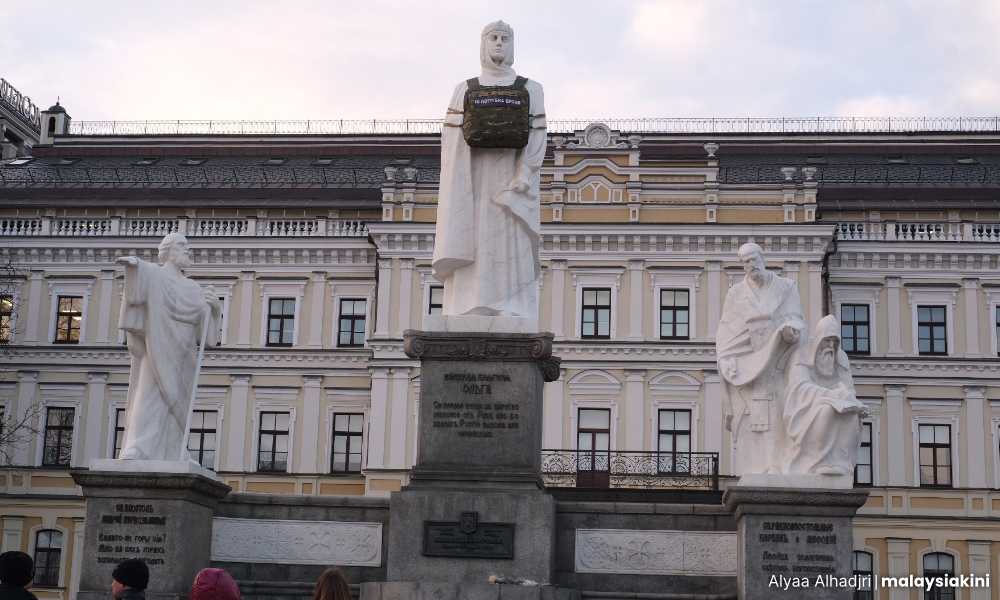
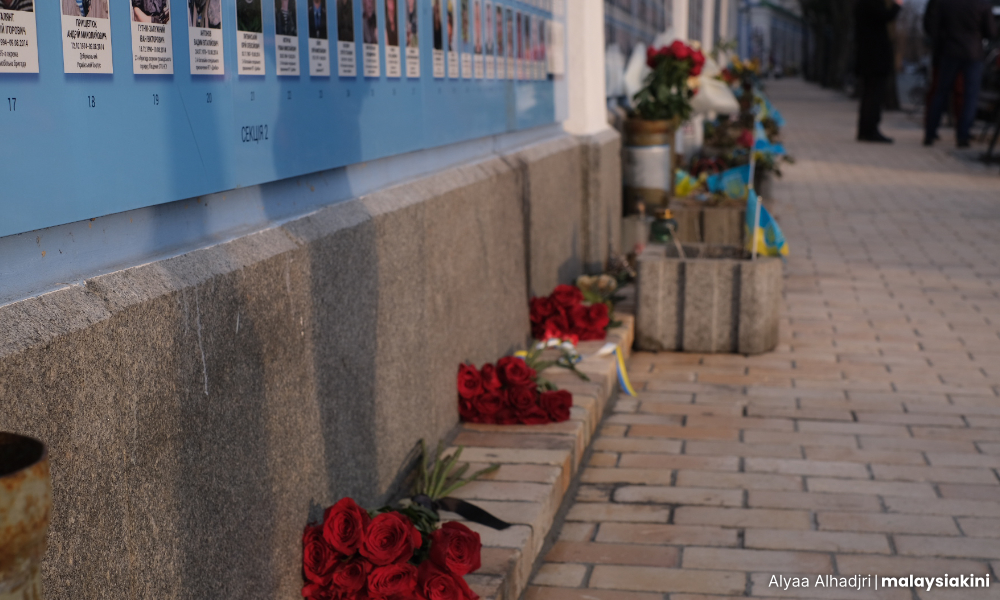
As a result of the war, the United Nations High Commission for Refugees estimated there are 3.7 million persons internally displaced within Ukraine as of January, while 6.3 million others were recorded as refugees.
The city of Lviv in Western Ukraine, located about 500km from the Polish border, is one of several international entry points into Ukraine since the closure of the country’s main airport.
It is now home to some 350,000 internally displaced persons or domestic refugees.
Maksym Kozytskyi, head of the Lviv Regional Military Administration, said the region’s population of over two million nearly doubled in the months following the invasion.
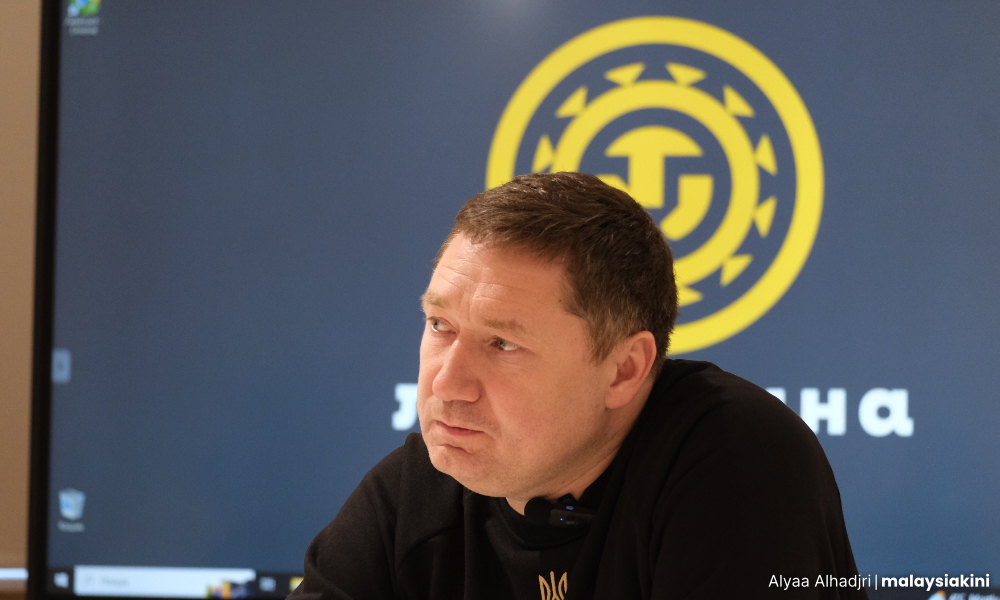
“In February 2022, we (in Lviv) received an influx of 150,000 people every day,” he told a group of journalists participating in a visit organised in cooperation with the Ukraine Crisis Media Centre.
He admitted there were difficulties in managing the initial wave of entries into Lviv but that the situation is now under control.
Housing internally displaced persons
Lviv has been regarded as one of the safest cities in Ukraine during the war, although enemy air raids - accompanied by warning sirens - remain a concern, with most buildings equipped with underground bomb shelters.
Kozytskyi said with Lviv hosting so many internally displaced persons, the priority now is to provide them with alternative housing and new jobs.
“At the beginning of the war, people in Lviv hosted those who arrived here in their own homes, even without being acquainted with the people,” he recalled.
While the local government and residents were credited for the initial assistance given, donations from the governments of Poland and the United Kingdom led to the construction of a modular settlement in Sykhiv district, about 15 minutes away from the city centre.
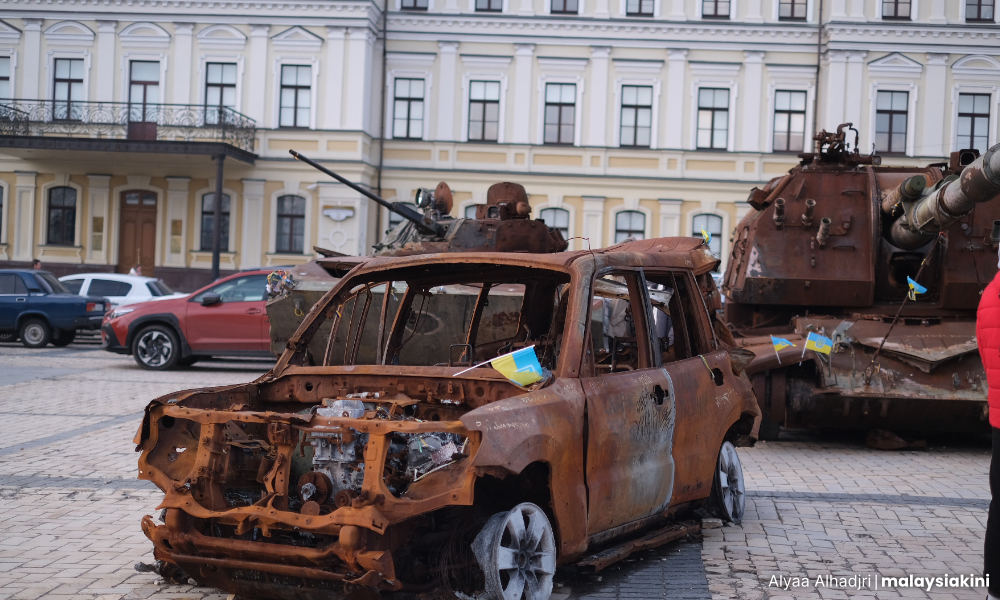
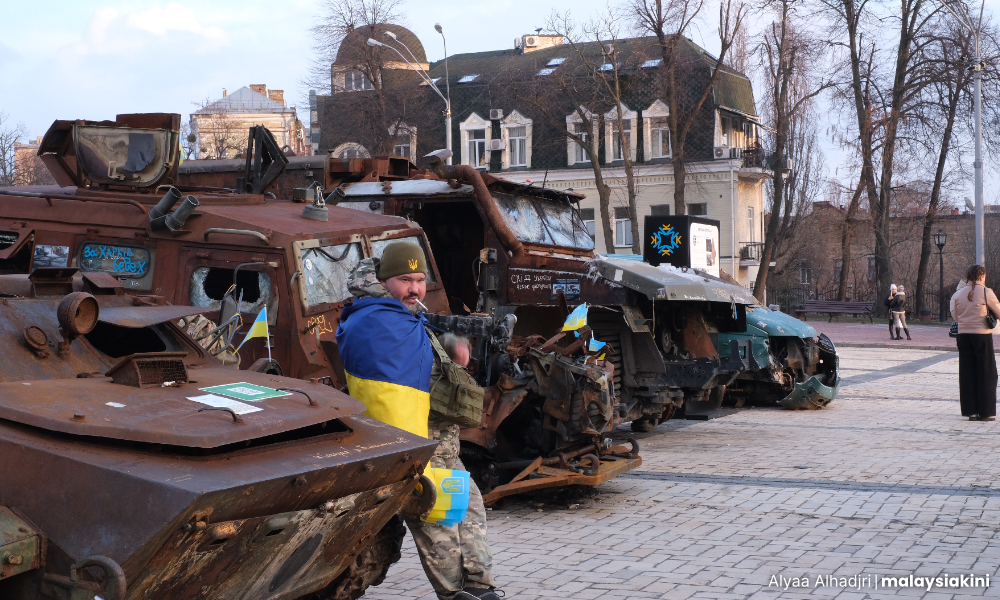
The settlement comprises eight two-storey structures, each floor divided into 44 units - 22 on each side - with a shared kitchen, dining area and bathrooms.
Oleh Feday, administrator of the settlement, said the structures were set up by the local government in April 2022, two months after the invasion started.
“Right now, we have over 1,000 residents. People live here for free. “The local Catholic church provides a free meal once a day,” he said.
The modular residential units that make up the settlement were fully assembled in Poland, Feday said, before they were shipped to Ukraine.
Living in a war
Many of the residents moved into the units as families, including 86-year-old Yuliya Vyshnevetska who is living with her daughter.
Speaking through an English translator, Vyshnevetska said attacks on her home in Donetsk - a Russian-occupied territory since 2014, over 1,000km away from Lviv - was a stark reminder of the horrors of World War 2.
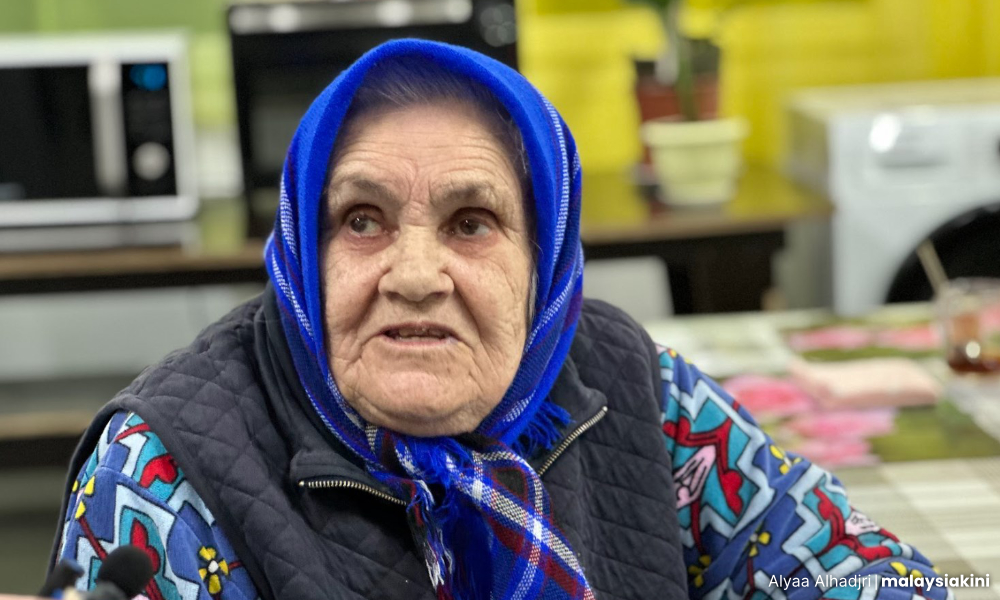
“I thought of going home, but our homes have been destroyed.
“I want Ukraine to win and I want us to have the lives we used to have,” said Vyshnevetska who expressed anger towards Russia’s President Vladimir Putin.
As for the younger generation growing up in the settlement, English teacher Ina Yurchenko said many have yet to understand the situation that forced them into the shelter.
“They are funny. I think they don’t understand the reasons we are here.
“They get scared when there’s an air raid alert, but when they are not in danger, they act just like other children,” said Yurchenko who holds daily English classes for six to 12-year-olds.
Yurchenko has high hopes for the future of her own children, with the eldest son now serving in the Ukrainian army, while her youngest son is 16 years old.
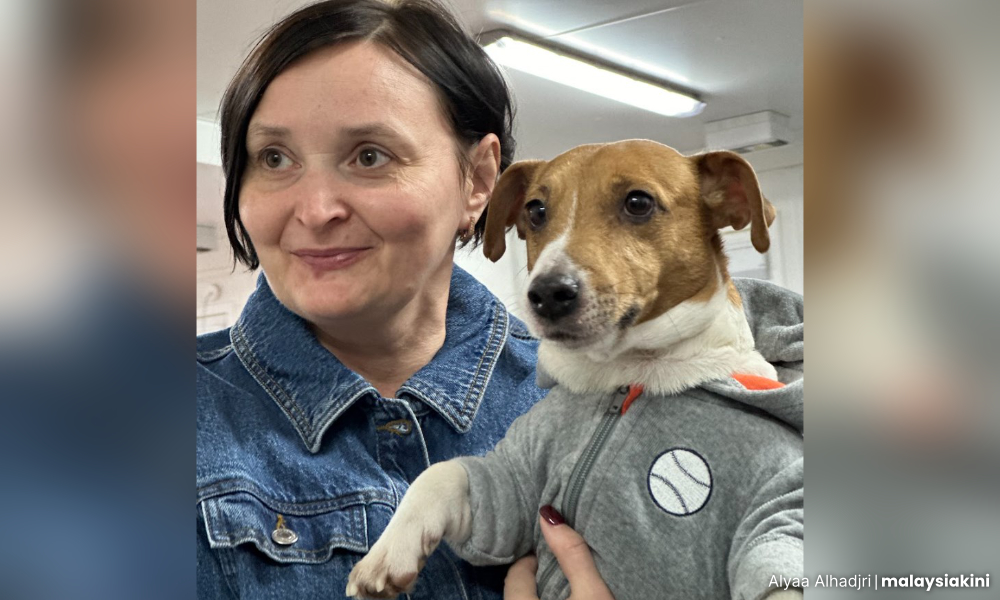
Across the city, the war and those fleeing from it have contributed to Lviv’s diverse culture.
Crimean-Tartar halal restaurants have emerged as popular dining establishments. They were set up by minority Muslim communities fleeing Russian occupation of their lands.
They found new homes among the majority Christian and Catholic communities, the latter having established centuries-old churches.
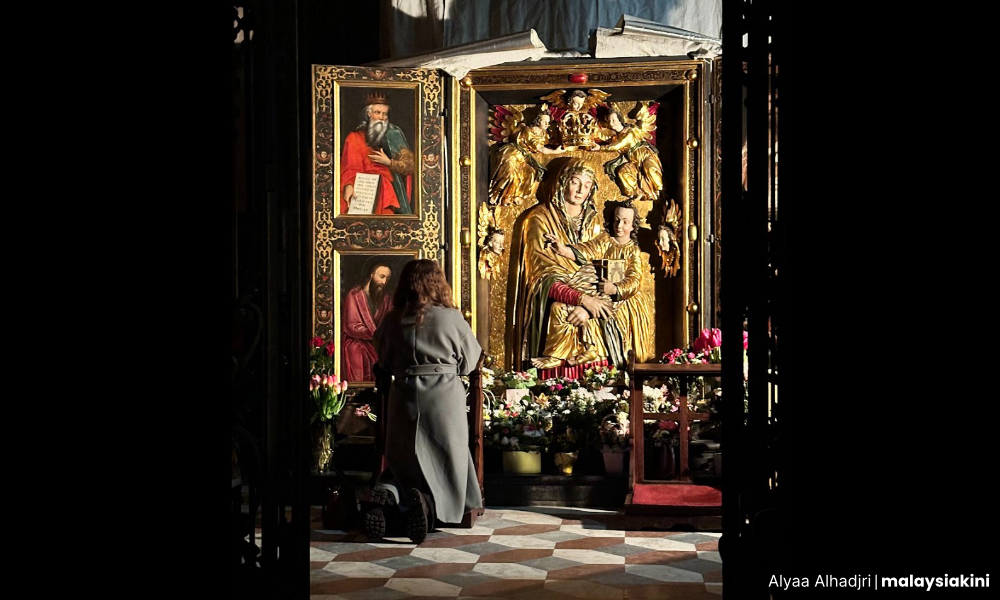
The Saints Peter and Paul Garrison Church, built in the 16th century, was shuttered by the Soviet government in 1946 but later reopened in 2010 by the Ukrainian Greek-Catholic church.
It remains a place of prayer for members of the Ukrainian military.
‘Russia can only be stopped if we resist’
Back in Kyiv, Ukrainian government officials have kept up their calls for global assistance in the ongoing war.
At the Ukraine Foreign Affairs Ministry, political department director Liubov Nepop said over 200 negotiations held with Russia since 2014 have failed to end aggressions which eventually culminated in the 2022 invasion.
Nepop said initial predictions that Russia would cease further attacks against Ukraine after it invaded Crimea in February 2014 have turned out to be untrue.
“In this period, we already realise that Russia can only be stopped if we resist.
“We were able to stop them at their so-called contact line, preventing them from going further into Ukraine,” she said.
“Since the start of the (2022) war, fortunately, international society has woken up and helped us with the resistance,” she added.
The ministry’s second secretary of desk office, Oleksandr Lysak, also revealed there are various ways for foreign countries including Malaysia to assist Ukraine.
“We are urging the Malaysian government to join the Ukrainian Peace Formula,” said Lysak, referring to Ukraine’s President Volodymyr Zelenskyy’s 10-point peace plan, first announced on Oct 12, 2022, to leaders from the Group of Seven (G7) countries.
Lysak added that the impact of the Russian-Ukraine war, with no immediate end in sight, can be far-reaching, culminating with famine in neighbouring countries that rely on grain produced in Ukraine. - Mkini



No comments:
Post a Comment
Note: Only a member of this blog may post a comment.